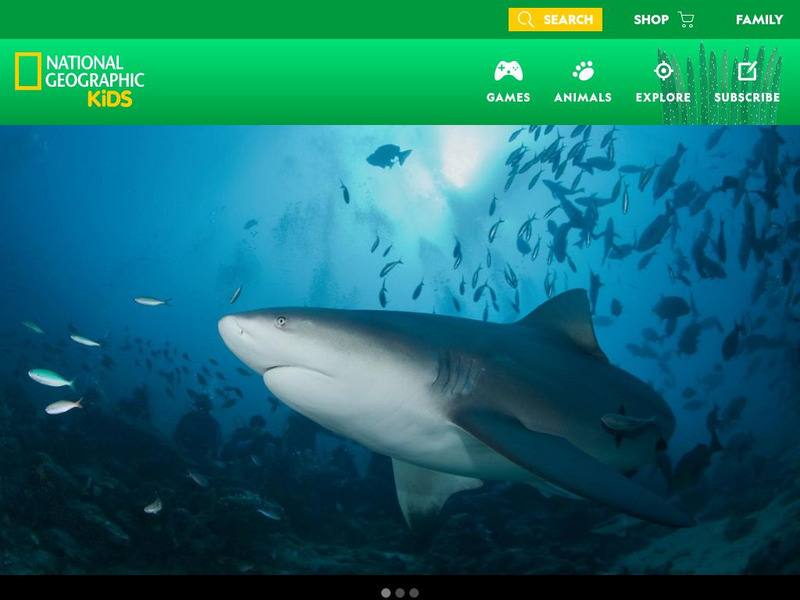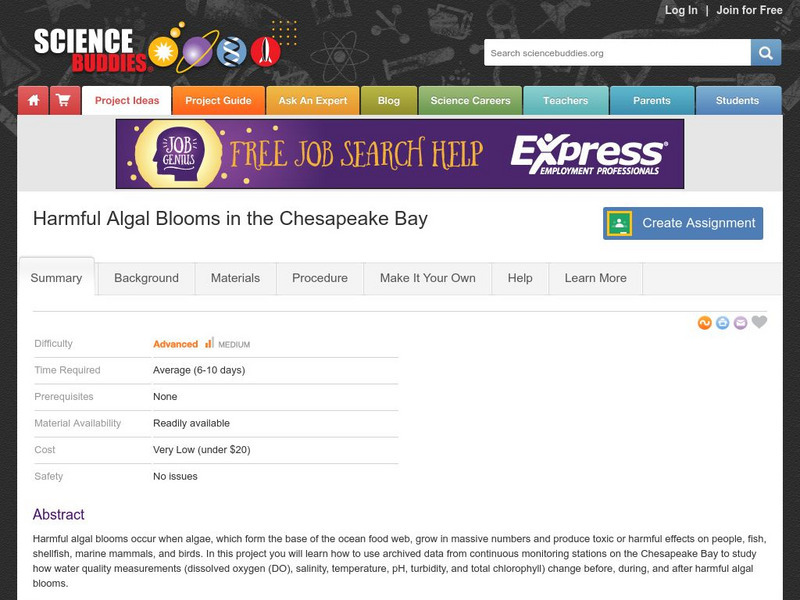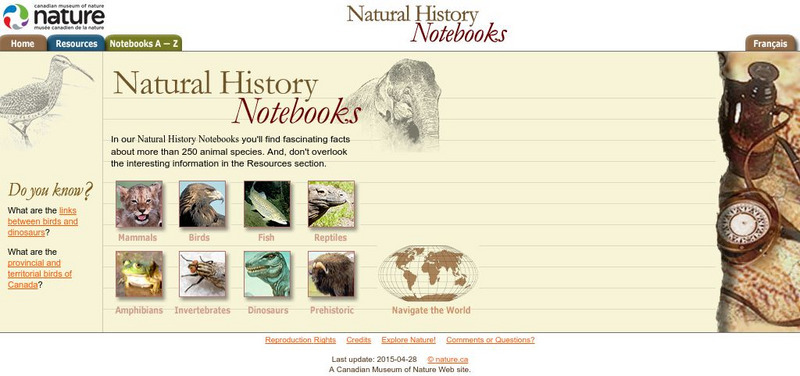Read Works
Read Works: Super Survival Skills
[Free Registration/Login Required] Students read about how different types of fish are able to defend themselves and survive in their environments. A question sheet is available to help students build skills in drawing conclusions.
TED Talks
Ted: Ted Ed: Why Are Sharks So Awesome?
Sharks have been celebrated as powerful gods by some native cultures. And today, sharks are recognized as apex predators of the world's ocean. What is it that makes these fish worthy of our ancient legends and so successful in the seas?...
Read Works
Read Works: Dead Zone
[Free Registration/Login Required] Students read about the "dead zone," an area in the Guld of Mexico where no fish can live due to pollution from fertilizer. A question sheet is available to help students build skills in cause and effect.
National Geographic
National Geographic: Crittercam Chronicles: Antarctica
Play a game where you explore three scenes in Antarctica and find different types of animals: south polar skua, crabeater seal, emperor penguin, ice fish, leopard seal, killer whale, krill, adelie penguin, and weddell seal. After you...
US Senate
Us Senate Committee Commerce, Science and Transportation
The Senate Committee on Commerce, Science and Transportation has jurisdiction over several areas. Come and find out more about this powerful committee by checking out this resource.
Curated OER
Etc: Maps Etc: Distribution of Fish in North America, 1910
A map from1910 of North America showing the distribution of primary commercial fish in the region, including oysters, clams, sponges, turtles, shrimp, lobster, whales and seals. The map shows marine species as well the freshwater salmon...
Other
Wicked Diving: Napoleon Wrasse
Because this site belongs to a diving tour company rather than to an aquarium or museum, the information about the Napoleon wrasse is "up close and personal." Learn basic facts about these fish, but also learn how they react to humans in...
Other
Planet Ark: World Environmental News
Welcome to Planet Ark's daily Reuters World Environment News - the most comprehensive source of environmental news on the Net. To read previous news stories, please use the search engine below to find stories relating to any...
Other
Fishin for Facts Library
A comprehensive site that includes a wealth of information on whales, sharks, penguins and squid.
National Geographic Kids
National Geographic Kids: Animals: Bull Sharks
National Geographic site engages users with colorful photos and extensive facts about Bull Sharks. Be sure to click on the video link to view a short clip on these fascinating animals.
Globio
Glossopedia: Rockhopper Penguins
Rockhopper penguins live in steep, rocky places. The only way they can get around on land is to hop from rock to rock. Rockhoppers grow about 46 cm tall - almost as high as an adult's knee. They are the smallest of the crested penguins....
Science Buddies
Science Buddies: Harmful Algal Blooms in the Chesapeake Bay
Harmful algal blooms occur when algae, which form the base of the ocean food web, grow in massive numbers and produce toxic or harmful effects on people, fish, shellfish, marine mammals, and birds. In this project you will learn how to...
TeachEngineering
Teach Engineering: Caught in the Net
Bycatch can be defined as the act of unintentionally catching certain living creatures using fishing gear. A bycatched species is distinguished from a target species (the animal the gear is intended to catch) because it is not sold or...
Curated OER
Marine Studies: Symbiosis
View graphics of a mimic octopus, frog fish, snake eel, hermit crab and clown fish. Discover how they form symbiotic relationships.
Curated OER
Marine Studies: Symbiosis
View graphics of a mimic octopus, frog fish, snake eel, hermit crab and clown fish. Discover how they form symbiotic relationships.
Curated OER
Marine Studies: Symbiosis
View graphics of a mimic octopus, frog fish, snake eel, hermit crab and clown fish. Discover how they form symbiotic relationships.
Curated OER
Marine Studies: Symbiosis
View graphics of a mimic octopus, frog fish, snake eel, hermit crab and clown fish. Discover how they form symbiotic relationships.
Curated OER
Marine Studies: Symbiosis
View graphics of a mimic octopus, frog fish, snake eel, hermit crab and clown fish. Discover how they form symbiotic relationships.
Curated OER
Marine Studies: Symbiosis
View graphics of a mimic octopus, frog fish, snake eel, hermit crab and clown fish. Discover how they form symbiotic relationships.
Curated OER
Marine Studies: Symbiosis
View graphics of a mimic octopus, frog fish, snake eel, hermit crab and clown fish. Discover how they form symbiotic relationships.
Read Works
Read Works: Hook, Line, and Sinker
[Free Registration/Login Required] An informational text about the depletion of edible seafood populations. A question sheet is available to help students build skills in reading comprehension.
PBS
Nova: Deep Sea Beastiary
Get descriptions and pictures of numerous deep sea fish. Discover the adaptations that enable them to survive at tremendous depths.
Canadian Museum of Nature
Canadian Museum of Nature: Natural History Notebooks
This site from the Canadian Museum of Nature, a natural history museum, provides short information blurbs and fun facts on over 240 different common animals categorized by type (mammals, fish, reptiles, invertebrates, amphibians,...
State of Florida
Florida Department of State: State Symbols
Learn about all of Florida's state symbols on this colorful page. Click on the symbol for a larger picture and more information.
Other popular searches
- Marine Fish Anatomy
- Marine Fish Osmoregulation
- Fish and Sea Creatures
- Marine Fish Diversity
- Marine Fish Powerpoints
















